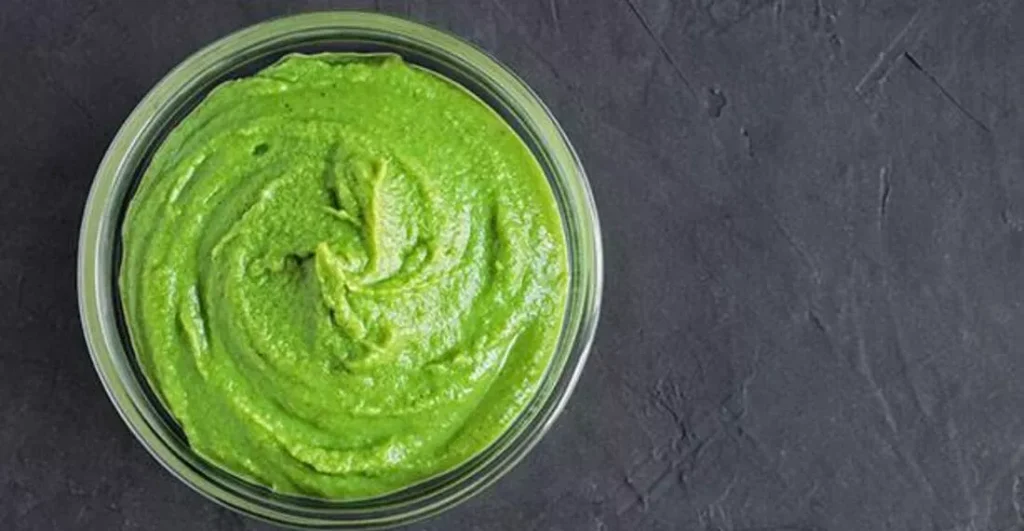Wasabi, also known as Japanese horseradish, is a plant of the Brassicaceae family. This plant grows naturally along stream beds in mountain river valleys in Japan and is a pungent condiment for sushi and other foods.
The taste of Wasabi is similar to hot mustard. The grating of its stem/rhizome produces a paste in making a range of Japanese foods like sushi. The most common Wasabi flavouring is ersatz, from Wasabi plants and some artificial herbs.
This plant has been widely known in Western countries, including the UK, since the 1980s. There is no commercial cultivation of Wasabi plants outside Japan; therefore, its demand has recently skyrocketed in the UK.

Sushi and other Japanese cuisines are very much liked in the UK, so for UK Muslims, it is necessary to know whether this critical sushi ingredient is halal or haram. This blog will discuss the halal and haram nature of Wasabi paste, so keep reading.
The Making of Wasabi Paste
Making Wasabi paste is quite simple. You must take a Wasabi rhizome and grate it finely, to get your authentic Wasabi paste. Remember to grate the rhizome when you are ready to cook or serve as the active chemicals in Wasabi disintegrate quickly, and thus the paste becomes tasteless. If you want fresh Wasabi paste, add it to sushi within 15 minutes, as after 15 minutes, it will not be fresh anymore.
As discussed above, Japanese Wasabi production is confined only to Japan, so many fake Wasabi pastes are available in the UK. Even in Japan, very few restaurants serve real Wasabi.
The European alternative to natural Wasabi paste is grinding European horseradish and adding green dye and mustard. This European Wasabi alternative has almost the same taste.
Islamic Verdict About Halal and Haram
Muslims worldwide seek guidance from Quran and Sunnah for leading their lives according to Islamic teachings. These two primary guidance sources contain timeless principles that modern Muslims can follow without hesitation.
Allah (SWT), in Surah Al Baqarah, has clarified the halal and haram food for Muslims.
“He has only forbidden to you dead animals, blood, the flesh of swine, and that which has been dedicated to other than Allah. But whoever is forced [by necessity], neither desiring [it] nor transgressing [its limit], there is no sin upon him. Indeed, Allah is Forgiving and Merciful.” (Quran 2:173)
(Source of above-cited Quranic Verse: https://quran.com/2/173?translations=84,17,95,101,22,20)
This Quranic verse is the guiding principle for distinguishing halal food from haram in Islam. According to this verse of the Holy Quran, carrion, i.e. dead meat, the blood, and swine (pig) meat, is haram. And also, the slaughtering and dedication of any halal animal other than Allah is haram.
Is Wasabi Halal or Haram?
Considering the above verses, Wasabi is halal as it is a plant-based product. Also, Wasabi paste is halal with haram ingredients like haram soya sauce or haram food additives extracted from Japanese or European horseradish. Sushi and other Japanese dishes with Wasabi and other halal ingredients are also halal.
European Wasabi paste uses blue dye and mustard as its components in its making. Any part of mustard is halal as it is a plant. But there are two blue dyes, blue one and blue two. The source of blue one is from plants, while blue two is from petroleum products. Therefore, both dyes are halal (though blue two may have some health hazards).
In a nutshell, if you want to consume Wasabi leaves or Wasabi paste, you can safely eat them as both are halal.
Final Thoughts
Holy Quran and Sunnah are the two primary sources of guidance for all of the Muslim populace. So, in light of the Quran and Sunnah, Wasabi is a plant, and any of its products are permissible to eat.
However, before deciding on a Wasabi paste dish, it is of utmost necessity to seek guidance from an established Islamic scholar of your school of thought who can make an informed decision based on the teachings of the Holy Quran and the Sunnah.



